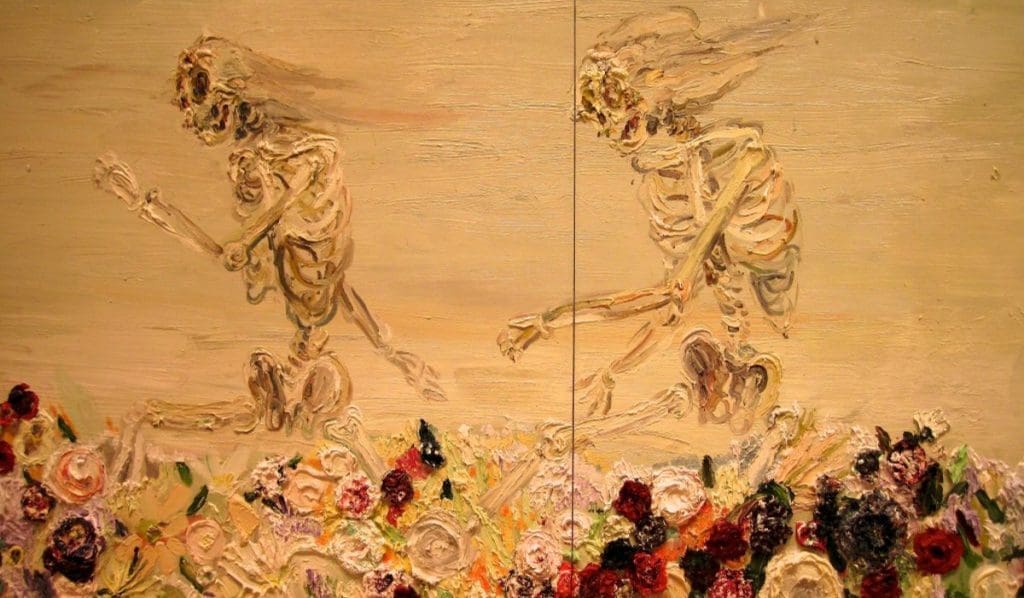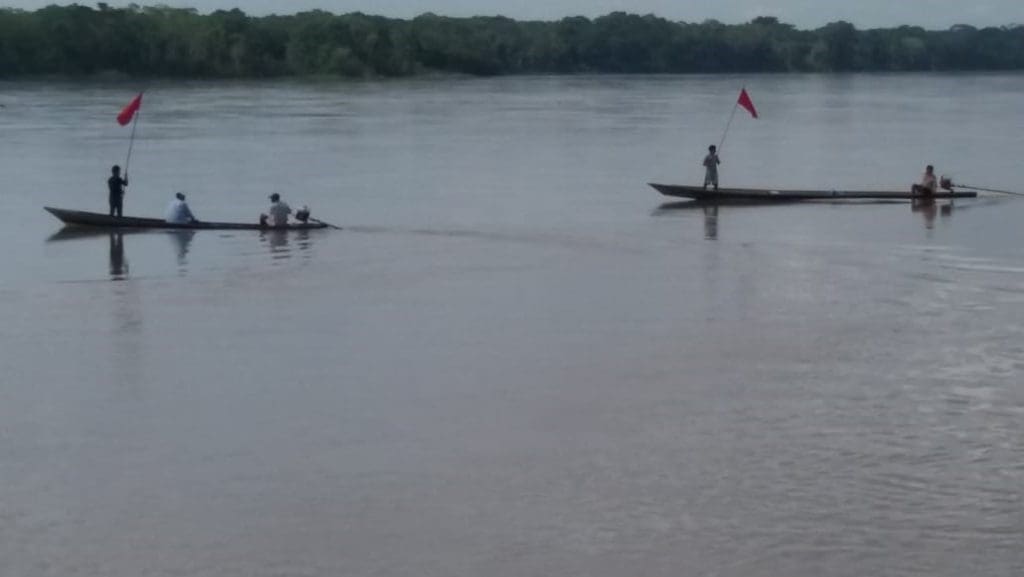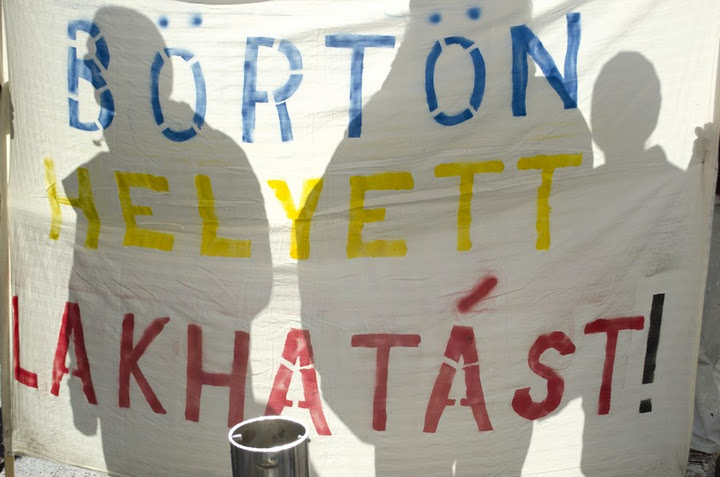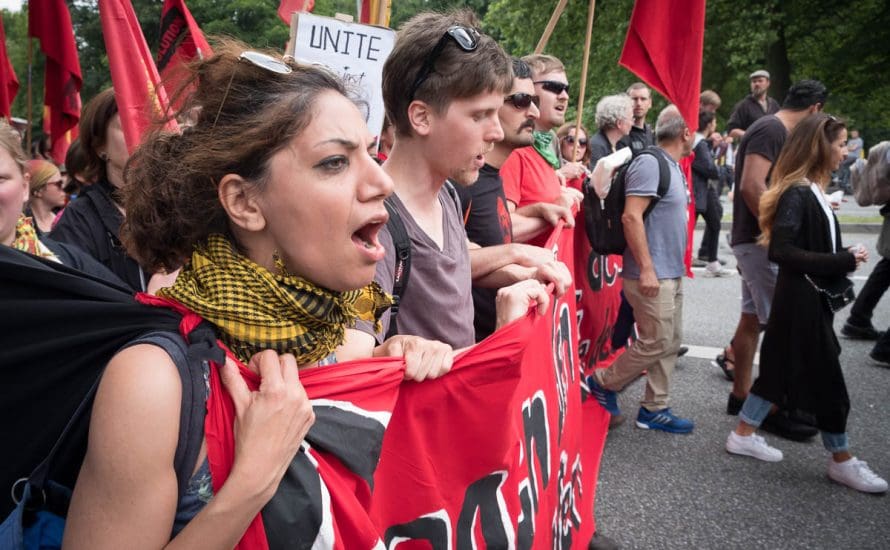Transcribed from the 14 September 2020 episode of This is Hell! Radio (Chicago) and printed with permission. Edited for space and readability. Listen to the whole interview:
People were very prepared to adapt—for a while. People made a lot of changes in their lives for the time being. What’s difficult, as the pandemic returns in many countries, is the idea that they will have to do that again, and possibly again and again and again. That’s where the difficulties are likely to arise.
Chuck Mertz: Our food system, like our economic system, is not compatible with crisis, and as we are in an age of crises, if we plan on continuing to eat, we’ll need to change how we grow, distribute, supply, and consume food. And the answer to all of that might be in something called agroecology. Here to help us understand, Helena Paul wrote the article “Looking Beyond the Pandemic: Agroecology and the need to rethink our food system,” which was was posted at the website Radical Ecological Democracy.
Helena is co-director of EcoNexus, a public interest research organization consisting of scientists and dedicated researches analyzing and reporting on new technologies that have the potential for significant negative impacts on biodiversity and ecosystems
Welcome to This is Hell!, Helena.
Helena Paul: Thank you very much indeed.
CM: You write, “COVID-19 is confronting us with our deepest contradictions. The vast majority of the more prosperous among us depend on an economic system based on the ever-greater extraction, exploitation, and overconsumption of what the planet provides. At the same time, this system is destroying our life support. Resilient ecosystems with flourishing biodiversity, clean water and good soil, the basis for healthy foods, lives, livelihoods, and a stable climate, it also drives exploitation, injustice, and inequality in society, and COVID-19 is in fact further widening the gap between rich and poor.”
Is the virus revealing how much we tolerate an unfair and unequal system, and how difficult it is to change that system? Does it reveal that we allow—that we are complicit in—an unfair, unequal system that only benefits the few while the many suffer?
HP: I’m afraid that it does. Increasingly in the global North, we have become more and more distanced from the realities experienced by the vast majority of people. Inequality is expanding as a result. People are really not sufficiently aware—say, people who are able to buy online: they expect their goods to be delivered just like that. They expect everything to be available all the time. And they can’t really understand what is involved in that. For example, there are corporate just-in-time delivery systems which are moving goods around, but the people who are moving those goods are very often in a very bad way indeed. They may be drivers or employees in packing factories. We’ve heard about Amazon and what happens to people who pack things there. These people who are essential to those chains are often the poorest paid and the most disadvantaged.
CM: Are we currently questioning an inequality we never questioned before, due to the pandemic? For instance, is there heightened awareness or sensitivity to all inequality, even inequality when it comes to policing, because of the pandemic? Does the pandemic just reveal inequality?
HP: The pandemic does reveal inequality, quite definitely. People have had very different reactions. There have been very generous reactions in some part, for example food banks need a lot of support in the UK, and many people are rallying around and giving them that support. But on the other hand there are many people who don’t really seem to pay much attention to what is happening to others, and they expect everything to carry on as usual.
There’s a lot of divisions there, but there is gradually perhaps more awareness of what other people are having to deal with under these circumstances. At the beginning of the pandemic, this is something I certainly noticed: people were very prepared to adapt—for a while. People made a lot of changes in their lives for the time being. What’s difficult, as the pandemic returns in many countries, is the idea that they will have to do that again, and possibly again and again and again. That’s where the difficulties are likely to arise.
Especially since our economies are so completely dependent on continued economic growth—for example, in the UK people are being asked to return to work, when they have started working at home and many have found that very positive, and they don’t really want to make the big journeys back to work. But many businesses depend on office workers. The complexity of the interactivity between the different aspects of our economy is immense, and our governments haven’t really grasped the beginning of it, really.
CM: Why is the commodification of agriculture not compatible with a pandemic or climate change? Why does the market not work when it comes to food in a time of crisis? Why doesn’t the profit incentive simply keep us all fed when there’s a virus or a massive rise in sea levels?
HP: We have this huge drive for economic growth, and we have masses of companies that are obviously dependent on increasing their profits. This means that over the past thirteen years, industrial agriculture has spread massively around the world, with many different impacts: hundreds of thousands of acres of land (very often cleared forest) put over to producing feed for animals and for intensive livestock production. And again, people’s appetite for meat has increased as a result of that.
The industry obviously has generated this response, because it needs those people to eat its products if it is going to continue to produce all this meat. It’s a relentless cycle that we tend to be involved in and that we really do need to break.
CM: You write, “We can live without many of the trappings of modern development.” This might be another thing being revealed by the virus: that humans can live well without many of the trappings of modern development.
To what extent do you think the pandemic is showing us that we do not need what you call those trappings of modern development? Are we realizing how much we miss those trappings? Or are we realizing they are simply not necessary? Because those trappings would seem like a really important part of the model for constant economic growth and the consumerism that we’re supposed to be engaged in in order to keep the economy going.
Are we realizing how much we miss these trappings or that we don’t need them whatsoever? And if we don’t need them whatsoever, that’s got to be a threat to the economic model.
With the increasing concentration of corporate power in the food sector, it’s very difficult to see how it can really shift unless we decide to put pressure on it by basically abandoning it.
HP: We are still enjoying many of those trappings. I just don’t think we need as many of them as we think we do. We continue to eat fast food, and to expect large quantities of cheap meat, and to expect it to be delivered to supermarkets. Think of the chain that’s involved: the slaughterhouses, the animals themselves and what they go through, and what people have to go through who work in these places, to generate this. I couldn’t help noticing that president Trump was emphatic that the slaughterhouses had to get going again as quickly as possible to keep this machine grinding on.
Really, that is what it is. The fact that we have been turned into consumers rather than citizens thinking about our choices and taking responsibility for them. We’ve become creatures that are supposed to consume; that is our main duty as human beings.
CM: Are the problems with our food system in the face of crises anything new? If we did not have neoliberalism in our food system, if we were still in the pre-neoliberal age of agriculture and food systems, what would be different? Would we be better off? Is that all we have to do is go backwards, or do we have to move forward?
HP: I don’t think it is going backwards, although some people would say it was. It’s quite interesting that in the UK during the war, there was a huge amount of growing of fruits and vegetables, and they collected night soil to improve the quality of the soils. A great deal of food was produced very locally in the UK for quite a long time. The same was true of the city of Paris a longer time ago.
These systems had been developed to feed people locally, with local food, and I don’t think that’s going backwards. That’s going forward, in the sense that people can become more aware of what food actually is, where it comes from, who grows it, what they go through to grow it, what climate change means for food production—people can begin to understand what the producer needs, and the producer can also understand what the group of people that they are providing food for actually want, and they can have discussions about what’s possible and not possible, and people begin to recognize seasonality again…I would not describe that as going back to something old. It would be a major development, going forward for all of us.
CM: Just-in-time delivery is about delivering components exactly when they are needed to be assembled, leaving no need for warehouses stockpiling goods because they go from ship to dock to factory floor to the market. Many are saying that just-in-time delivery is an utter failure: incredibly susceptible to crisis and leaving the public unprepared when they need deliveries the most.
What do you think is the likelihood that the market will abandon just-in-time delivery, now that it has been proven a failure when there is any kind of crisis? Especially with the knowledge that the challenge of climate change is going to create more crises and, as recent studies argue, we will also see an increase in the number of viruses that can potentially cause yet more pandemics—will the market abandon the profits of just-in-time delivery because it is dangerous in the face of a crisis?
HP: I wonder. If the triple bottom line starts to look difficult, then they might do. But they’ve invested so much into this, and there are technologies like Big Data and so forth that are still being developed for use in these systems, which also enables them to be more and more controlled by just a few interests—I think it’s going to take a while for them to abandon that.
Of course, if there are crises—climate change events causing production breakdowns at one end and there isn’t anything much to deliver—combining with other major crises, then it will break down of its own accord. But with the increasing concentration of corporate power in the food sector, it’s very difficult to see how it can really shift unless we decide to put pressure on it by abandoning it ourselves. All those things have to come together, but the power of those corporations is massive. It’s so much larger than that of many governments, and shouldn’t be underestimated.
CM: You point out that “industrial, large-scale livestock production is a central player in the food system that we currently have, and it involves cruelty to animals and exploitation of people from farmers right along the chain to slaughterhouse and meat packing staff (frequent victims of COVID-19), plus high levels of climate-forcing emissions; it also involves massive production of animal feed, a leading cause of biodiversity destruction and more climate-forcing emissions. Crops such as soy and maize, often genetically modified, are produced, for example, throughout the Americas, displacing Indigenous peoples, peasant farmers, and diverse agriculture.”
These would all seem to be very high human costs in order to get food. Are these necessary evils when it comes to food distribution? In order for us to feed the world, do we need to have—at least for now—these human and environmental costs?
HP: I don’t think we can afford to continue with this system, because has we destroy forests, so climate changes, and as climate changes, so forests die (and catch fire, as you’ve been experiencing in the States). And without the knowledge of how to control fires, which Indigenous people very often have, both in the Amazon and the United States, it becomes more and more impossible to control these events, especially considering high temperatures and climate change. To continue to produce masses of feed for producing meat is not tenable anymore.
And if you think about it, we waste extraordinary amounts of food within this system, in the UK and all over the world. Incredible amounts of food are thrown out that could perfectly well be eaten. There are some attempts to pass this on to food banks, but they’re not always successful. And individuals throw away a great deal of food each day themselves. That is also a major problem, and we could actually change a lot by having a system where food waste was not such a matter of course.
The other thing, of course, is that meat is hugely expensive in resources. I can’t remember the figures exactly, but to produce a kilo of beef requires many kilos of feed, and also water. To reduce the amount of meat that people eat would be a huge help in addressing the many crises that we have, whether it’s climate, loss of water, or biodiversity loss, which is absolutely major due to the production of meat and feed.
CM: Why the over-production of food? Why the oversupply? What does that reveal to you about what the current agricultural system’s real goal or mission is? What is the real goal of the agricultural system, when we’re clearly producing far too much food for the world to consume?
If we want to continue to live healthy lives, we have to think about the health of our soils, the health of our animals, the health of our forests, and everything that surrounds us.
HP: What is the purpose of industrial agriculture? Not to feed people adequately, or even soundly. As we know, a great deal of industrial food is extremely bad for people; it is generating a health crisis around the world. The true purpose of the industrial food chain is actually to increase the profits of corporations. That’s not surprising, because the way a corporation is constituted, as was invented by the British East India Company back around 1604, is to make a profit. When investors gave their shares back to the company and became simply shareholders, the most important thing was to provide profits for them.
We have a system that’s deeply flawed, with a huge predominance of the power of corporations. People are not taking too much notice of it partly because these days people are so distracted, so busy—people are quite isolated and have real difficulty in relating to food. It’s a shocking fact that many families don’t eat together anymore. Many people say that have no more time to cook. So the whole business of food has been downgraded to something that you eat on the hoof. The number of times I’ve sat in a train and watched people shoving a sandwich down their throats while looking at their mobile phones—that’s not the way food should be at all.
Somehow we have to recover respect for food, respect for producers, and understanding of the business of producing food. Maybe we will begin to understand why a meat diet and the power of the supermarkets with their undercutting and cheap food and not providing farmers with a fair price for their goods, and all these things—we will perhaps begin to see why they need to change, if we move from being consumers back to being citizens again.
CM: You write how Indigenous women “are also the keepers of medicinal plants and healers. Considering that an estimated four billion people rely primarily on natural medicines for their healthcare, and some seventy percent of drugs used for cancer are natural or are synthetic products inspired by nature, their insight and role is crucial. Furthermore, Indigenous women can help us change our attitudes to both food and medicine by reminding us that health is more than just the absence of disease, which is the main focus of Western medicine, and includes how we live with the biosphere.”
How do we view health differently when we see it as not only the absence of disease? What is health other than the absence of disease?
HP: In a world with galloping climate change and the collapse of biodiversity—which we are on the edge of—people will realize that their health is absolutely dependent on the health of ecosystems. To give an even more clear example, of course, we are now seeing the emergence of diseases that are generated by our pressure on biodiversity. The disease is the end product, but its emergence arises because we are putting such pressure on forests and biodiversity.
Even mosquitoes descend from the canopy when we cut the forest down, so we expose ourselves more to their bites. It’s very clear that if we want to continue to live healthy lives, we have to think about the health of our soils, the health of our animals, the health of our forests, and everything that surrounds us, as well as our own personal health, because we do not live in a bubble that can be cut off from all of that.
CM: You mention agroecology, and I’d like to have you define that and explain to our audience what that is. But one of the major focuses of large-scale agriculture is crop yield. In agroecology, you write that that is not the main issue. So can agroecology feed the world?
HP: Agroecology is the interaction between all the elements of the system—that is, the farm itself and the ecosystem that it’s a part of, and the people who work on it, and also the people who are fed by it. The most important thing, really, about agroecology is relationships between things.
The reason yield is not the primary factor in agroecology? A couple of years ago I was talking to some conventional farmers who were growing conventional wheats. They were saying they were having terrible problems with their wheat because of a drought. The drought was drying out the ground; the wheat was not providing enough shadow. They were having great difficulty, whereas people who were growing traditional varieties of taller wheats were not having the same problem, and one reason for that was that their soils were in better condition. If your soils are in better condition, they don’t dry out so fast.
There are many interacting factors involved in all this. For example, take pests. If you have a pest that you want to get rid of, you might think, “Okay, quick squirt of a pesticide, that’ll deal with it.” Well, you may find that you have to carry on squirting, and then that pest may become resistant to your pesticide, so you have to use a different one, a second one, or maybe a mixture of both together. And then the pest will acquire some resistance to that too, and we start to get on a pesticide treadmill.
Whereas the idea within agroecology is that if you have a pest, usually in a natural system you can find something that will eat that pest or otherwise trip it up, give it a hard time. Basically, you need to have biodiversity within your system so you can encourage what they call beneficial predators, and those beneficial predators will help to deal with your pests.
The idea of agroecology is an interactive system where you don’t treat any part of the system as unnecessary or disposable. One of the things that we’ve done in the last forty to fifty years is treat our soils as a dead medium—and in a way, that’s what they’ve become. There are whole areas of soil in the UK that have no worms. There are large parts of East Anglia where we’ve only got a few more years of harvest because the soil is in such a state. So this is really important.
Really, what we’re saying is that an agroecosystem needs to mimic the amount of biodiversity and the ways that a natural ecosystem functions.
We need to develop something else that is much more grassroots, and enables communities to come together to work out how to solve their problems. This happens in many parts of the world. Some of it’s being revived, some of it is traditional.
CM: You write, “The UK also aims to export its research to other regions, especially Africa. The linear focus is mainly on increasing yields and eliminating pests.”
To what degree is eliminating pests also eliminating Indigenous small-scale agroecological farming practices? Should we just view eliminating pests as a colonial, even imperial project?
HP: Yes, I think we can. The pesticide manufacturers want us to think in these terms: first of all, they want us to think of the pest as a pest. It might just be a beetle, but it’s a pest because it’s going to attack your crop. At least that’s what they’ll tell you. Obviously if you’re producing a pesticide you’ll want to ensure that people think in a certain way and will therefore buy your pesticide. It is a major problem that this manner of thinking is now being exported (has been exported, actually, for a very long time) to parts of Africa, where people are trying to establish agroecology but are also experiencing the push for something very different. They are being given free inputs of all kinds—pesticides, fertilizers, whatever—in order to encourage them down that path.
CM: Do we see ourselves as consumers and not citizens because it allows us to not take responsibility? Is being a citizen more difficult than being a consumer? I’m afraid far too many people would rather be consumers. In your writing you talk about convenience, and how convenient food is bad. It seems like convenience is our top priority. Do we view ourselves as consumers and not citizens because we just want things to be more convenient?
HP: I’m afraid that is very much the case. The idea of convenient food, for example, is very tempting to many people, because they don’t want to spend so much time thinking about or preparing food. Yes, we have been drawn into this—we’ve been turned into this creature called the consumer. And what is this creature for? Entirely to serve the interests of all the multifarious companies that can profit from our activities, whether it’s the supermarkets right down the chain back to the farmer, often an outgrower for a large corporation (say, a palm oil corporation or whatever it might be). So yes, we have decided to go for that.
We say we live in a democracy: we go and make a cross on a piece of paper every four years, and we have to choose between candidates who are given to us to choose between—but we should be taking much more responsibility for our own lives, and trying to work together at all levels to make decisions. It’s interesting, the citizen’s assembly idea has begun to grow a little bit in the West. It’s a great idea because it brings together ordinary people to discuss issues and make decisions about them. Sometimes if governments are brave, they say to the people, “We’ll give you a referendum on these decisions and if you say yes, we’ll do it.” That’s what we need more of.
Members of the public are remarkably wise when they’re allowed to ask questions and given time to deliberate. They also report they really enjoy this business of what I would call democratic deliberation. They come up with very good things indeed when they are in a position where they can spend the time and call on experts if they want some more information, but they are the ones who finally make the decisions.
That’s the sort of responsibility that we all have to think of taking. We may need to try to develop something else that is much more grassroots, and enables communities to come together to work out how to solve some of their problems. This happens in many parts of the world. Some of it’s being revived, some of it is traditional. Indigenous people have decisionmaking processes which involve everybody and which come up with decisions for that particular group. There’s a great deal of very exciting possibility in grassroots democracy.
It’s interesting that one of agroecology’s functions is also to free people up in this sense—it’s a democratic process to give people a sense of empowerment, and that’s what we need to become citizens rather than merely consumers. To be sure, it will involve many changes in our lives. It may involve major economic changes. But I really can’t see how we’re going to get through these multiple crises unless we take hold of that and commit ourselves to the excitement and the unknown of trying that path collectively.
CM: One last question for you, Helena. If things continue on the trajectory that is happening within the agricultural industry and the food system today—let’s say we have a vaccine and everybody is immunized from COVID-19 at the end of 2021 or whenever it is, this mythical land that we keep thinking of—what do you think the agricultural system will look like? How will it be different from before the pandemic?
HP: It will only be different if we make it different. It’s not going to change by itself. There’s a huge inertia in the system as it is at the moment, because it’s based on the idea of perpetual economic growth. Therefore we need a paradigm shift. And paradigm shifts, as Copernicus discovered when he tried to say that the Earth is not the center of universe—people take quite a long time to recognize what is required for this.
Of course there are people who are working to make change. It’s wonderful that they’re doing so, and they’re everywhere, all over the world, trying to make change. I hope that the strength of that desire to make change can help us on our way, but I think the problem is that some of the changes that seem to be coming as a result of the pandemic also look as if they may be disappearing again as we try so hard to go back to “business as usual” and carry on with our destructive habits. We really need a challenge. This is an opportunity, and we really mustn’t lose it—but we very easily could.
CM: Helena, thank you so much for our conversation today.
HP: Thank you very much indeed for inviting me, it was wonderful.





